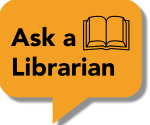
We can use a wildcards to either fill in a word ending or a specific character in a word.
Which symbols are used to designate a wildcard, are often different for different databases.
Place either $ or * at the end of a word with more than 3 letters before it, and all potential word ending will be searched. Be careful when using this as there will possibly be word endings that you hadn't thought of, that will bring up irrelevant search results.
treat$ = treat, treats, treatment, treated, treater, treatable, treaty, et al.
canad* = Canada, Canadian, Canadians, et al.
Instead of allowing all possible word endings, replace n with the number of letters you would like it to fill in.
treat$1 = treaty, treats
sun$4 = sunroom, suntans, sunspot, sundaes, et al.
A # is used to replace an single unknown character. It's useful when there are vowel shifts between singular and plural words, or for differences in American and British spelling.
wom#n = woman, women
A ? is used to optionally replace a single character. This is useful for differences in American and British spelling.
counsel?ing = counselling, counseling
p?ediatric = paediatric, pediatric
Place an * at the end of a word with more than 3 letters before it, and all potential word ending will be searched. Be careful when using this as there will possibly be word endings that you hadn't thought of, that will bring up irrelevant search results.
Publi* = publish, public, publicize, publican, publication, et al.
Use an * in the middle letters to fill in all possible letters that work in between. This works best with at least 3 letters.
he*one = headphone, headstone, hearthstone, et al.
A ? is used to replace an single unknown character. It's useful when there are vowel shifts between singular and plural words, or for differences in American and British spelling.
organi?e = organize, organise
licen?e = licence, license
A # is used to optionally replace a single character. This is useful for differences in American and British spelling.
labo#r = labour, labor

